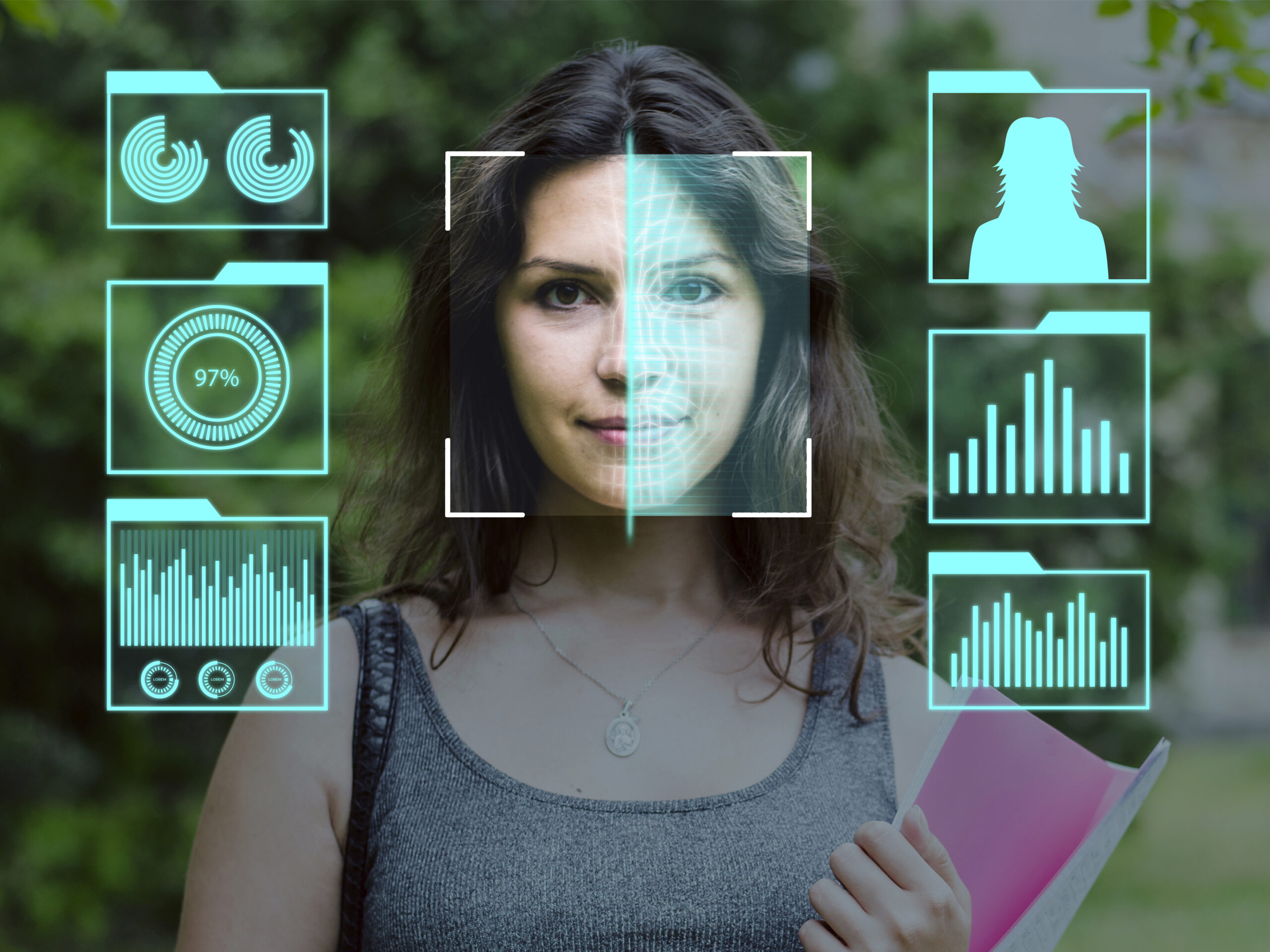Modern technology has made life more convenient in many ways, but it has also brought new challenges. Deepfake technology is one of these challenges. For those not familiar, deepfakes are digitally manipulated videos or images that can make it appear as though someone is saying or doing something they never did. This technology can be harmless when used for entertainment but poses significant risks when used maliciously.
In the hospitality industry, where trust and security are paramount, the emergence of deepfake IDs is particularly concerning.
Imagine a scenario where a guest books a stay at your property using a sophisticated fake ID created using deepfake technology. This could lead to a host of problems, from financial losses to potential safety threats. That’s why understanding and detecting deepfake IDs has become crucial for anyone managing short-term rentals.
Guest screening is the first line of defense against such threats. Effective guest screening can help identify potential risks before they turn into real problems, ensuring the safety and security of both property owners and legitimate guests. The goal of this guide is to shed light on the dangers of deepfake IDs and how AI-powered guest screening can help mitigate these risks.
Understanding Deepfake IDs
So, what exactly are deepfakes?
Deepfakes use artificial intelligence to create hyper-realistic digital content. By analyzing and learning from existing images or videos, deepfake technology can produce new, highly convincing visuals that can be difficult to distinguish from the real thing. Initially, deepfakes gained popularity for entertainment purposes, such as swapping faces in videos. However, their potential for misuse quickly became evident.
In the context of IDs, deepfakes can be used to create entirely fake identities or alter real ones. For instance, someone might use deepfake technology to modify their ID photo or video verification to match someone else’s appearance. This kind of deception can lead to serious security breaches, especially in the hospitality industry, where verifying the identity of guests is critical.
Why should you be worried about deepfake IDs in your short-term rental business?
The consequences can be severe. Accepting a booking from a guest using a deepfake ID can result in financial losses if the booking turns out to be fraudulent. Worse, it can compromise the safety of your property and other guests. It’s not just about the immediate financial impact—there’s also the potential harm to your reputation. Guests trust you to provide a safe and secure environment, and failing to do so can damage that trust irreparably.
The Importance of Detecting Deepfake IDs
The security risks associated with deepfake IDs are substantial. First and foremost, there’s the risk of identity theft and fraud. If a guest uses a fake ID to book a stay, they might have malicious intentions, such as stealing property or committing other crimes. This not only endangers other guests but also puts your property at significant risk.
Financial implications are another major concern. Fraudulent bookings can lead to lost revenue, as you might end up dealing with chargebacks and other financial disputes. Additionally, the costs associated with repairing any damage or theft caused by fraudulent guests can add up quickly. And in some cases, you might even face legal liabilities if it’s determined that you didn’t take adequate steps to verify the identity of your guests.
Beyond the immediate financial and security concerns, there’s also the matter of reputation management. In the hospitality industry, your reputation is everything. A single incident involving a deepfake ID can lead to negative reviews, which can severely impact future bookings. Maintaining trust with your guests is crucial, and that means ensuring their safety and security at all times.
This is where AI guest screening comes into play. AI can help identify deepfake IDs before they become a problem, providing an additional layer of security for your property.

How AI Guest Screening can help?
AI involves machines learning from data to make decisions or predictions. In the context of guest screening, AI can analyze vast amounts of information quickly and accurately, helping you identify potential risks that might go unnoticed with traditional methods.
AI can also recognize patterns and anomalies that humans might miss, making it much harder for deepfakes to slip through the cracks.
One important feature is pattern recognition. AI algorithms are trained to recognize the subtle signs that indicate a deepfake. This might include inconsistencies in facial features, unusual lighting in photos, or unnatural movements in video. By identifying these red flags, AI can help you spot potential fakes before they become a problem.
Integration with existing guest management systems is also a big plus. Many AI screening tools can be easily integrated into your current workflow, making the transition smooth and hassle-free. This means you can start benefiting from AI without needing to overhaul your entire system.
Techniques for Detecting Deepfake IDs with AI
AI uses several techniques to detect deepfake IDs, each focusing on different aspects of the ID verification process. One of the most effective methods is image and video analysis. AI can analyze photos and videos for signs of manipulation, such as mismatched lighting, irregular textures, or inconsistencies in the background. These subtle details can be hard for the naked eye to spot but are often clear giveaways to an AI system.
Facial recognition technology is another powerful tool in the AI arsenal.
This technology compares the image on an ID with user-provided photos or live video to ensure they match. It’s not just looking for a general resemblance but also checking for specific markers and features that are difficult to fake. This makes it much harder for deepfake IDs to pass undetected.
Behavioral biometrics is a more advanced technique that goes beyond just analyzing images and videos. This method involves monitoring user behavior to identify suspicious patterns. For example, AI can track how a person moves, types, or interacts with their device. If someone is acting in a way that’s inconsistent with typical behavior patterns, it could be a sign of fraud. Behavioral biometrics adds an extra layer of security by focusing on how users behave, not just how they look.
These AI techniques work together to provide a robust defense against deepfake IDs. By combining image and video analysis, facial recognition, and behavioral biometrics, AI can offer a comprehensive solution that addresses multiple aspects of the ID verification process. This multi-faceted approach makes it much harder for deepfakes to go undetected, ensuring your property stays secure.
Best Practices for Implementing AI Guest Screening
When it comes to choosing an AI screening tool, you want something that’s accurate, fast, and easy to integrate into your existing systems. Look for tools that offer high accuracy rates in detecting fake IDs and deepfakes. Speed is also crucial; the tool should be able to process data and provide feedback almost instantly. Integration capabilities are important too. The best tools can seamlessly fit into your current workflow, reducing the need for major changes or additional training.
Integrating AI Screening into Your Workflow
Integrating AI screening into your guest management process doesn’t have to be complicated. Start by identifying key points in your workflow where screening would be most effective, such as during the booking process or at check-in. Work with your AI provider to ensure the tool is properly set up and that your team knows how to use it. Regular training sessions can help keep everyone up-to-date on best practices and any new features the AI tool might offer. The goal is to make the transition as smooth as possible so that you can start reaping the benefits right away.
Ensuring Privacy and Compliance
Balancing security with privacy is a key concern when implementing AI screening. Make sure your chosen tool complies with relevant data protection regulations, such as GDPR or CCPA. This includes how data is collected, stored, and used. Be transparent with your guests about the screening process and why it’s necessary. This can help build trust and reassure them that their data is being handled responsibly. Remember, maintaining privacy doesn’t mean sacrificing security; it’s about finding the right balance.

Future Trends in AI and Guest Screening
Advancements in AI Technology
AI technology is continually evolving, and staying ahead of these advancements can give you a competitive edge. Emerging technologies like deep learning and neural networks are making AI even more powerful and accurate. These advancements can improve the detection of deepfake IDs, making it harder for fraudsters to bypass your security measures. Keeping an eye on these trends can help you adapt and upgrade your screening processes as needed.
As digital security threats become more sophisticated, so too must our defenses. AI will continue to play a crucial role in this ongoing battle. Future AI tools might incorporate more advanced behavioral analysis, better integration with other security systems, and even predictive analytics to identify potential threats before they occur. Staying informed about these trends will help you protect your property and guests from the ever-changing landscape of digital threats.
